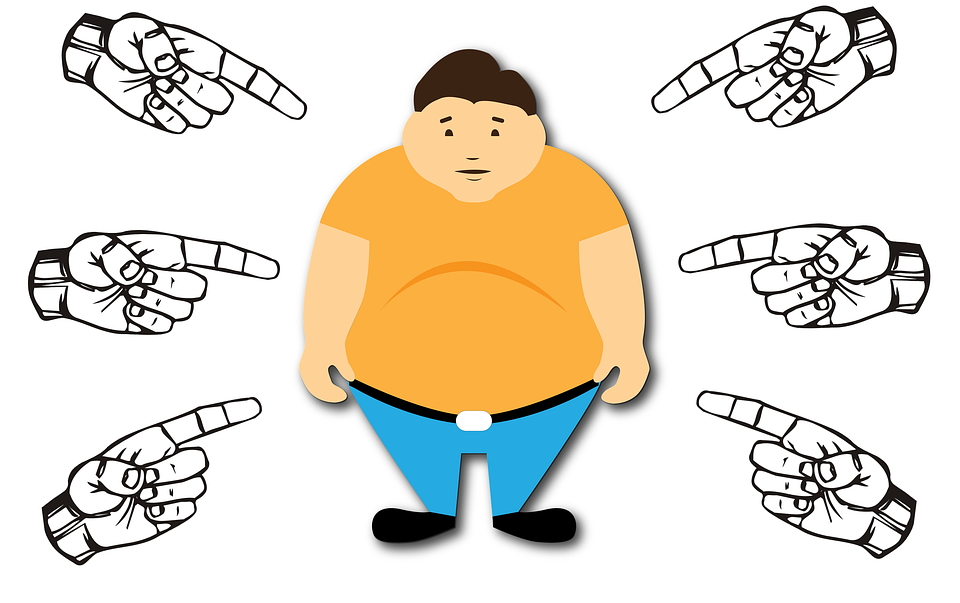Childhood obesity has reached epidemic levels in developed as well as in developing countries. Overweight and obesity in childhood are known to have significant impact on both physical and psychological health. Overweight and obese children are likely to stay obese into adulthood and more likely to develop non-communicable diseases like diabetes and cardiovascular diseases at a younger age. The mechanism of obesity development is not fully understood and it is believed to be a disorder with multiple causes. However it does increase a child’s risk for serious and chronic medical problems.
Health risks of childhood obesity
Childhood obesity is a growing health concern that can have serious long-term health consequences. The health risks associated with childhood obesity include an increased risk of developing type 2 diabetes, high blood pressure, heart disease, stroke, and certain types of cancer later in life. Obese children are also more likely to experience psychological problems such as low self-esteem and depression. In addition, childhood obesity can lead to joint problems and sleep apnea, which can affect a child’s overall health and well-being. It is crucial for parents, healthcare providers, and communities to work together to prevent and treat childhood obesity to ensure that children have a healthy future.
Negative effects of obesity on children
Obesity in children can have numerous negative effects on their physical, emotional, and social well-being. Obese children are at higher risk for developing health problems such as diabetes, high blood pressure, heart disease, and sleep apnea. They may also experience low self-esteem, depression, and social isolation due to teasing and bullying from peers. Additionally, obesity can impact a child’s ability to participate in physical activities, leading to a sedentary lifestyle and decreased physical fitness. Over time, these negative effects can compound, leading to a lifetime of health and social challenges for children who struggle with obesity. It is important to address the issue of childhood obesity through healthy lifestyle choices and support from healthcare providers and caregivers to ensure the best outcomes for children’s overall health and well-being.
Psychological Effects of Childhood Obesity
Psychological effects of childhood obesity can be divided into two categories, namely the short term and long term effects. Short term effects include self image, body awareness, social acceptance, peer pressure and bullying. Long term effects include depression, anxiety, low self esteem, eating disorders and other mental health problems.
Child Obesity & Self Image
Childhood obesity is a major public health concern that has been linked to a range of serious health problems including cardiovascular disease, diabetes, and high blood pressure. However, beyond the physical health risks, obesity can also have a significant impact on a child’s mental and emotional well-being. Children who are overweight or obese are at a higher risk of experiencing poor self-image and low self-esteem. This can lead to a range of negative consequences, including social isolation, poor academic performance, and even depression. These negative effects can persist into adulthood, highlighting the importance of early intervention and prevention efforts to address childhood obesity.
The link between childhood obesity and self-image is complex, and there are many factors that can contribute to poor self-esteem in overweight or obese children. Factors such as teasing or bullying by peers, media images promoting unrealistic beauty standards, and negative comments from family members can all contribute to a child’s negative self-image. As a result, it is important to address the issue of childhood obesity not only from a physical health perspective but also from a mental health perspective. By promoting positive body image and self-esteem among children, we can help to mitigate the negative impact of childhood obesity on their overall well-being.
Obesity & Body Awareness
Obesity is a medical condition characterized by excessive accumulation of body fat, which can lead to numerous health problems, including diabetes, cardiovascular disease, and joint problems. While genetics and hormonal factors play a role in the development of obesity, lifestyle habits such as unhealthy eating and sedentary behavior are the primary drivers. The World Health Organization (WHO) has identified obesity as a global epidemic, with over 650 million adults worldwide considered to be obese. Obesity is a multifaceted issue that requires a holistic approach to address. One aspect of this approach is body awareness, which is the ability to perceive and understand one’s body and its needs. People who have a high level of body awareness are more likely to make healthy lifestyle choices, such as choosing nutritious foods and engaging in physical activity, which can help prevent and manage obesity.
Body awareness involves being mindful of how one’s body feels, looks, and moves. People with low body awareness may struggle to recognize when they are full or hungry, leading to overeating or undereating. They may also have poor posture and body mechanics, which can lead to pain and discomfort. In contrast, people with high body awareness are more likely to listen to their body’s signals, such as hunger and fullness, and adjust their behavior accordingly. They are also more likely to engage in physical activity that feels good for their body, rather than pushing themselves too hard or avoiding exercise altogether. Developing body awareness can be done through practices such as mindfulness, yoga, and meditation, which can help people tune into their body and better understand its needs. By promoting body awareness, individuals can take an active role in managing their weight and preventing obesity-related health problems.
In conclusion, obesity is a complex issue that requires a multifaceted approach to address. One important aspect of this approach is promoting body awareness, which can help individuals make healthy lifestyle choices that prevent and manage obesity. By being mindful of how their body feels, looks, and moves, individuals can better understand their body’s needs and make informed decisions about food and physical activity. Promoting body awareness through practices such as mindfulness, yoga, and meditation can help individuals develop a deeper connection with their body and improve their overall health and well-being.
Social Acceptance & Child Obesity
Social acceptance can have a significant impact on child obesity. In many societies, there is a cultural acceptance of overweight or obese children. This can lead to a lack of concern or even praise for children who are carrying excess weight. However, this acceptance can have detrimental effects on the child’s health. Children who are overweight or obese are at a higher risk of developing numerous health problems, including diabetes, heart disease, and asthma. They may also experience social stigma and discrimination, which can lead to low self-esteem and poor mental health. Additionally, societal norms that promote sedentary behavior and unhealthy food choices can contribute to the development of childhood obesity. To combat this issue, it is essential to promote healthy lifestyle choices and create a culture that values physical activity and a nutritious diet. Parents, schools, and communities can all play a role in promoting healthy habits and encouraging social acceptance of healthy lifestyles. This can help to reduce the prevalence of childhood obesity and improve the health and well-being of children.
Child obesity & Peer Pressure
Childhood obesity is a significant public health concern worldwide, with numerous health implications, including type 2 diabetes, high blood pressure, and cardiovascular disease. Children who are overweight or obese may also experience social and emotional challenges, such as peer pressure, that can lead to poor self-esteem and depression. Peer pressure can manifest in various forms, including the need to conform to societal beauty standards and expectations. For instance, children who are overweight or obese may be subjected to teasing, bullying, and exclusion from social activities. Appearance-related concerns, such as stretch marks on hips and abdomen, can further exacerbate the issue, leading to body dissatisfaction and negative self-image. Addressing childhood obesity and related social and emotional challenges is crucial to promoting healthy physical and mental development in children.

Bullying
Some children who are overweight or obese are bullied by their peers because they are perceived as weak or different. Bullying can lead to poor academic performance and lower self confidence.
Asthma

One of the potential consequences of Childhood Obesity is asthma. Asthma is a chronic respiratory disease that causes difficulty in breathing due to the narrowing and inflammation of the airways. When a child is obese, they may have excess fat that puts pressure on the lungs and chest, making it harder for them to breathe. Obesity can also cause inflammation in the body, including the airways, which can further exacerbate asthma symptoms. Additionally, children who are overweight may have a higher risk of developing sleep apnea, which can also contribute to breathing difficulties and worsen asthma. It’s essential for parents and caregivers to work towards preventing childhood obesity to reduce the risk of asthma and other related health conditions.
Eating Disorders
Some children who are overweight or obese suffer from anorexia nervosa or bulimia nervosa. Eating disorders are characterized by extreme concern over food and weight. Children who are suffering from these disorders usually restrict their diets and then binge eating on large amounts of food. This cycle continues until the child feels better but he/she does not lose any weight.
Depression
Depression is one of the most common psychiatric conditions among adolescents. It affects approximately 10% of all teenagers. Depression is associated with many factors including stress, lack of sleep, substance abuse, and certain medical illnesses. In addition, some studies suggest that there may be a link between obesity and depression.
Anxiety
Anxiety is another condition that is more prevalent among overweight and obese children. Anxiety is a state of worry and fear. Many times it is caused by something happening in the future (e.g., getting sick) or by past experiences (e.g., being rejected). Overweight and obese children have been found to experience higher levels of anxiety than normal weight children.
Low Self Esteem
Low self-esteem is a problem for many people. However, it seems to affect overweight and obese children more than normal weight children. The reason for this is unclear. One theory suggests that overweight and obese children may develop low self-esteem due to teasing and bullying by their peers. Another theory suggests that parents may place unrealistic expectations on their children.
Other Mental Health Problems
Other mental health problems include: Attention Deficit Hyperactivity Disorder (ADHD), Oppositional Defiant Disorder (ODD), Conduct Disorder (CD), Learning Disability, Autism Spectrum Disorder (ASD), Obsessive Compulsive Disorder (OCD), Tourette’s Syndrome, Bipolar Disorder, Schizophrenia, and other Psychiatric Conditions.
The effects of childhood obesity on children’s physical and psychological well-being are significant. Therefore, it is important to understand how to prevent and treat childhood obesity.
What are the consequences of Childhood Obesity ?
The consequences of childhood obesity are numerous. Some of them include Cardiovascular disease, Type 2 diabetes, Hypertension, Arthritis, Stroke, Heart attack and even Premature death
Childhood obesity can lead to serious complications later in life. For example, if you are obese during your teenage years, you could face an increased risk of developing type 2 diabetes, high blood pressure, stroke, gallbladder disease, arthritis, osteoporosis, sleep apnea, and cardiovascular diseases. Additionally, obese adults are more likely to suffer from chronic diseases like hypertension, coronary artery disease, and stroke.
There are also some disadvantages associated with childhood obesity. For instance, obese children tend to have lower self-esteem and they often feel depressed. They may also struggle academically because of poor concentration. Furthermore, obese children are more prone to develop eating disorders and substance abuse.